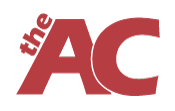Therapists Corner
What Is Physiotherapy and How Can It Help You Recover Faster?
Physiotherapy is a healthcare profession focused on restoring and maintaining physical function and mobility. Using a combination of manual therapy, exercise prescription, education, and modalities like ultrasound or dry needling, physiotherapists treat a wide range of conditions—from post-operative rehabilitation to repetitive strain injuries.
How Physiotherapy Speeds Up Recovery
1. Targeted Treatment Plans
One-size-fits-all solutions don’t work when it comes to healing. Physiotherapists assess your mobility, strength, and injury history to develop a customized plan. This ensures you’re doing the right exercises at the right intensity—avoiding setbacks and speeding up results.
2. Reduced Inflammation and Pain
Manual therapy techniques like joint mobilization, myofascial release, and trigger point therapy help reduce inflammation and improve circulation. This promotes tissue repair and relieves pain without relying solely on medication.
3. Restoring Range of Motion
After an injury or surgery, joints and muscles can become stiff and restricted. Physiotherapy includes guided stretching and mobilization techniques that gradually restore movement, preventing long-term complications like frozen shoulder or chronic stiffness.
4. Rebuilding Strength and Stability
Weak muscles and poor movement patterns can prolong recovery or lead to re-injury. Your physiotherapist will guide you through targeted strength training that supports the injured area and improves overall body mechanics.
5. Prevention of Re-injury
Education is a vital part of your physiotherapy plan. Our team teaches you how to move smarter—whether that’s adjusting your posture at work, warming up properly before exercise, or using supportive bracing during recovery.
At The Apollo Clinic, we regularly treat:
-
Sports injuries (sprains, strains, ACL recovery)
-
Post-surgical rehabilitation (e.g., joint replacements)
-
Chronic pain (e.g., neck, back, and shoulder pain)
-
ICBC motor vehicle accident injuries
-
Workplace injuries (WCB claims)
-
TMJ dysfunction and headaches
-
Pelvic floor rehabilitation

